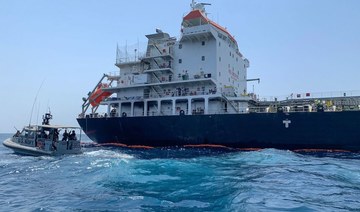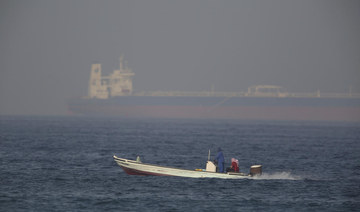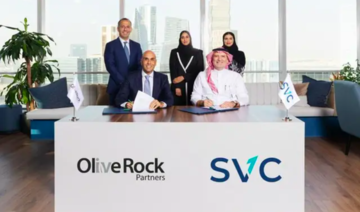DUBAI: Attacks on tankers in the Arabian Gulf have jolted the shipping industry, with some of the 2,000 companies operating ships in the region on high alert and ordering their vessels to transit the Strait of Hormuz only during daylight hours and at high speed.
Washington’s accusation that Iran is behind the attacks targeting oil tankers comes as tensions flare between the two countries. The US has deployed an airstrike carrier and bombers to the region, and announced this week it will send 1,000 more troops. European powers are facing a deadline from Tehran to ease the effects of punishing US sanctions — described by its leaders as “economic warfare” — or Iran will break out of the limits set on its uranium enrichment by the landmark 2015 nuclear deal.
The apparent targeting of tankers is alarming to ship owner, said chief shipping analyst at BIMCO, Peter Sand. The company dubs itself the world’s largest shipping association.
But it’s more or less business as usual for shippers, he said, despite the need for added precautions.
“They are all of course increasingly worried, but many of them are going with business as they would have done without the attacks, but of course with an extra layer of safety and security measures on top of that,” Sand said.
That means going at high speed through the Strait of Hormuz, which at its narrowest point is about 3 kilometers (2 miles) wide. Normally, vessels carrying cargo would slow down to save on fuel costs.
It also means avoiding the strait at night to keep better watch on security around the vessel.
Washington alleges Iranian forces surreptitiously planted limpet mines on two vessels in the Gulf of Oman last week. The attack forced the evacuation of all 44 crewmembers onboard and left one of the ships ablaze at sea.
Washington also blamed Iran for similar attacks on May 12 that targeted four oil tankers anchored off the coast of the UAE. Iran denies being involved. The attacks last week targeted the Norwegian-owned MT Front Altair, which had a cargo of highly flammable naphtha loaded from the UAE, and the Kokuka Courageous, a Japanese tanker carrying Saudi methanol. Both had been traveling through the Gulf of Oman, having passed the Strait of Hormuz.
Of the roughly 2,000 companies that operate ships in the Gulf, only two companies have halted bookings outright. Otherwise, “business has continued more or less undisrupted,” Sand said.
In fact, higher risks could boost the bottom line for some oil shippers, after a lackluster period for the industry. A risk analysis by shipping services company Braemar ACM said owners can ask for higher premiums now. The firm said the Gulf region was declared as a “Listed Area,” meaning it faces enhanced risk, after the May 12 incidents targeting tankers off the UAE coast.
Immediately after last week’s attacks, freight rates for operators in the Gulf rose 10-20 percent.
With increased risks, however, come higher insurance premiums, which are expected to rise 10-15 percent.
It’s typically the buyers and charterers who bear the brunt of the overall higher costs, another reason why security of the Strait of Hormuz is paramount for oil-importers around the world. An estimated 18-20 million barrels of oil — much of it crude — pass through the strait every day. BIMCO says anywhere between 10-40 vessels carrying just crude oil move through daily.
During the so-called Tanker War of the 1980s, when Iran and Iraq targeted vessels carrying one another’s exports, the US Navy escorted oil tankers through the Arabian Gulf to ensure American energy supplies. But the US is no longer as reliant on Arabian producers.
Today, any conflict that threatens tankers would badly disrupt crude supplies for energy-hungry East Asia. Higher prices could hit hardest China, Japan, South Korea, Singapore and Indonesia — among the five biggest buyers of Arabian oil.
Indeed, the MT Front Altair was headed to Japan; the Kokuka Courgaeous reportedly to Singapore.
The Washington Post quoted this week Air Force Gen. Paul J. Selva, vice chairman of the Joint Chiefs of Staff, as saying that because most of the oil passing through the Strait of Hormuz is headed to Asian markets, it would be ill-advised for the US military to take the same role it did in the 1980s.
He said there were plans to reach out to the big Asian oil-importers about a possible international effort to safeguard tanker traffic.
Robert Macleod, CEO of Frontline Management, whose vessel Front Altair was targeted last week, said the general area of the Strait of Hormuz “represents a real and very serious risk to shipping.”
In a statement, he said crews must be on high alert while traversing through the passage. The company, however, said it had re-commenced trading in the region after briefly halting it following the attack. He said the company also tightened security measures, but did not elaborate.
One extraordinary measure ship owners might consider, if the situation deteriorates further, is having armed guards onboard. This is already the case for many vessels transiting the Gulf of Aden, where piracy is a major concern.
“From a shipping industry perspective, we are certainly not in favor of bringing more armed guards onboard international commercial ships because they are
not warships,” said Sand. “They should not be carrying arms. They should be able to transit without being interrupted.”
Crude shippers boost security after attacks on tankers in Gulf
Crude shippers boost security after attacks on tankers in Gulf
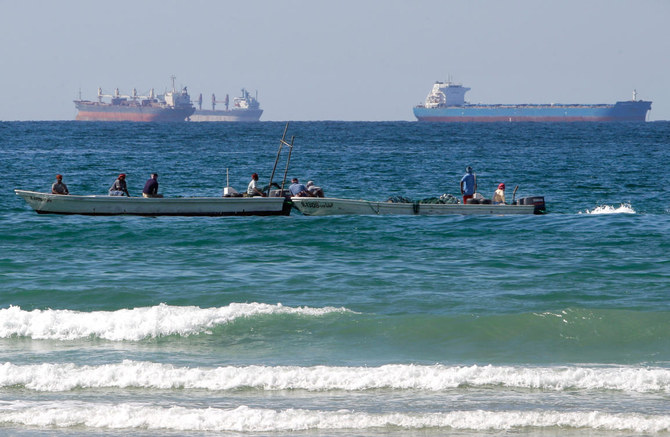
- Some of the 2,000 companies operating ships in the region are on high alert - ordering their vessels to transit the Strait of Hormuz only during daylight hours and at high speed
- Washington’s accusation that Iran is behind the attacks targeting oil tankers comes as tensions flare between the two countries
Meituan looks to hire in Saudi Arabia, indicating food delivery expansion

SHANGHAI: Chinese food delivery giant Meituan is seeking to hire staff for at least eight positions based in Riyadh, in a sign it may be looking to Saudi Arabia to further its global expansion ambitions, according to Reuters.
The jobs ads, which is hiring for KeeTa, the brand name Meituan uses for its food delivery operations in Hong Kong, is seeking candidates with expertise in business development, user acquisition, and customer retention, according to posts seen by Reuters on Linkedin and on Middle Eastern jobs site Bayt.com.
Meituan did not immediately respond to a request for comment by Reuters on its plans for Saudi expansion.
Bloomberg reported earlier on Friday that the Beijing-based firm would make its Middle East debut with Riyadh as the first stop.
Since expanding to Hong Kong in May 2023, Meituan’s first foray outside of mainland China, speculation has persisted that its overseas march would continue as the firm searches for growth opportunities, with the Middle East rumored since last year to be one area of possible expansion.
“We are actively evaluating opportunities in other markets,“ Meituan CEO Wang Xing said during a post-earnings call with analysts last month.
“We have the tech know-how and operational know-how, so we are quietly confident we can enter a new market and find an approach that works for consumers there.”
IMF opens first MENA office in Riyadh

RIYADH: The International Monetary Fund has opened its first office the Middle East and North Africa region in Riyadh.
The office was launched during the Joint Regional Conference on Industrial Policy for Diversification, jointly organized by the IMF and the Ministry of Finance, on April 24.
The new office aims to strengthen capacity building, regional surveillance, and outreach to foster stability, growth, and regional integration, thereby promoting partnerships in the Middle East and beyond, according to the Saudi Press Agency.
Additionally, the office will facilitate closer collaboration between the IMF and regional institutions, governments, and other stakeholders, the SPA report noted, adding that the IMF expressed its appreciation to Saudi Arabia for its financial contribution aimed at enhancing capacity development in its member countries, including fragile states.
Abdoul Aziz Wane, a seasoned IMF director with an extensive understanding of the institution and a broad network of policymakers and academics worldwide, will serve as the first director of the Riyadh office.
Saudi minister to deliver keynote speech at Automechanika Riyadh conference

RIYADH: Saudi Arabia’s Deputy Minister of Investment Transaction Saleh Al-Khabti is set to deliver the keynote speech at a global automotive aftermarket industry conference in Riyadh.
Set to be held from April 30 April to May 2 in the Saudi capital’s International Convention and Exhibition Center, Automechanika Riyadh will welcome more than 340 exhibitors from over 25 countries.
Al-Khabti will make the marquee address on the first day of the event, which will also see participation from Aftab Ahmed, chief advisor for the Automotive Cluster at the National Industrial Development Centre, Ministry of Industry and Mineral Resources.
Saudi Arabia’s automotive sector is undergoing a transformation, with the Kingdom’s Public Investment Fund becoming the major shareholder in US-based electric vehicle manufacturer Lucid, and also striking a deal with Hyundai to collaborate on the construction of a $500 million-manufacturing facility.
Alongside this, Saudi Arabia’s Crown Prince Mohammed bin Salman launched the Kingdom’s first electric vehicle brand in November 2022.
Commenting on the upcoming trade show, Bilal Al-Barmawi, CEO and founder of 1st Arabia Trade Shows & Conferences, said: “It is a great honor for Automechanika Riyadh to be held under the patronage of the Saudi Arabian Ministry of Investment, and we’re grateful for their continued support as the event goes from strength-to-strength.
“The insights and support we’ve already received have been invaluable, and we look forward to continuing this relationship throughout the event and beyond.”
This edition of Automechanika Riyadh will feature seven product focus areas, including parts and components, tyres and batteries, and oils and lubricants.
Accessories and customizing, diagnostics and repairs, and body and paint will also be discussed, as well as care and wash.
Aly Hefny, show manager for Automechanika Riyadh, Messe Frankfurt Middle East, said: “The caliber of speakers confirmed to take part at Automechanika Riyadh is a testament to the event’s growth and prominence within the regional automotive market.
“We have developed a show that goes beyond the norm by providing a platform that supports knowledge sharing and networking while promoting the opportunity to engage with key industry experts and hear the latest developments, trends and innovations changing the dynamics of the automotive sector.”
Aramco-backed S-Oil expects Q2 refining margins to remain steady then trend upward

SEOUL: South Korea’s S-Oil forecast on Friday that second-quarter refining margins will be steady, supported by regular maintenance in the region, then trend upward in tandem with higher demand as the summer season gets underway, according to Reuters.
Over the January-March period, the refiner said it operated the crude distillation units at its 669,000-barrel-per-day oil refinery in the southeastern city of Ulsan at 91.9 percent of capacity, compared with 94 percent in October-December.
S-Oil, whose main shareholder is Saudi Aramco, plans to shut its No. 1 crude distillation unit sometime this year for maintenance, the company said in an earnings presentation, without specifying the time.
Venture investments spark renaissance of Saudi innovation

RIYADH: In Saudi Arabia, a dynamic transformation is unfolding within the entrepreneurial landscape, powered by the robust growth of venture capital, which achieved an impressive 86 percent compound annual growth rate from 2019 to 2023.
This financial infusion has been a game-changer, propelling the Kingdom past the $1 billion mark in venture capital investment last year and igniting a wave of innovative thinking among Saudi entrepreneurs.
Simply put, VC is a category of private market investment and financing. A VC firm raises capital from investors, referred to as Limited Partners, and uses that capital to fund promising startups they have determined as likely to have high growth potential in an emerging category.
A vibrant scene
“The rise of venture capital in Saudi Arabia is fueling a vibrant entrepreneurial scene,” said the founder of Saudi-based VC firm Nama Ventures.
Offering a unique perspective on this financial phenomenon, Mohammed Al-Zubi shared his insights with Arab News about how venture capital is energizing the entrepreneurial scene in the Kingdom.
Al-Zubi described this financial influx as a vital nutrient, fostering a fertile ground for innovation and growth within the Kingdom.
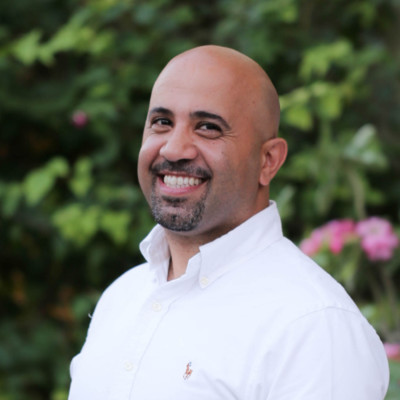
Ripple effects
“Startups get crucial funding, expert guidance, and exit pathways, attracting and retaining ambitious talent. This creates a ripple effect — successful ventures generate high-quality jobs, attracting more skilled professionals and expertise,” Al-Zubi told Arab News.
However, he explained that challenges like limited seed funding and skill mismatch require more attention.
“By fostering a diverse ecosystem and addressing these gaps, Saudi Arabia can harness the power of VC to build a thriving and sustainable entrepreneurial powerhouse,” Al-Zubi added.
Echoing Al-Zubi’s remarks, Tariq bin Hendi, senior partner at Global Ventures, told Arab News that the Kingdom’s VC growth reflects its booming economy.
“Saudi Arabia is a large market with compelling macroeconomics and significant funding, which in turn is re-shaping the regional startup landscape,” Hendi said.
“Increased investment has helped start-ups to digitize, scale and accelerate their business operations — with many success stories: Tarabut, Zension, RedSea, Zid and Hakbah being among the most well-known,” Hendi added.
An innovative economy
Hendi emphasizes the crucial role of venture capital in the economic diversification of Saudi Arabia.
He notes that sectors like agritech, fintech, and cleantech are attracting significant investments, aligning with Saudi Arabia’s Vision 2030 goals.
“The increase in investment saw Saudi Arabia secure MENA’s (Middle East and North Africa) highest VC funding in 2023, which is also aligned with the country’s Vision 2030 objectives,” he stated
“Venture capital’s investment in nascent technologies and innovative ventures allows for early-stage experimentation and for new start-ups to respond to analogue-based problems previously difficult to navigate through digitalization,” Hendi added.
According to him, this synergy between venture capital and startups not only drives technological progress but also offers insights into the regulatory landscape, promoting economic diversity and innovation within the region.
He also highlights the broader impact of venture capital, noting how it enables local businesses to scale and address global challenges, creating job opportunities and demonstrating the Kingdom’s potential in leading sustainable startup growth.
Moreover, Hendi points out that venture capital stimulates international collaboration, attracting global investors and reducing investment risks, further bolstering Saudi Arabia’s position as a dynamic hub for economic activity and innovation.

Furthermore, in his article “Venture Capital Fundamentals: Why VC Is A Driving Force Of Innovation,” Mark Flickinger, general partner and chief operating officer at US-based BIP Ventures, describes VC as a critical factor for economic innovation.
“VC is a rewarding form of private market investment that gives innovators a real chance to transform their ideas into businesses. It connects founders and investors, driving progress and successful outcomes for both,” Flickinger said.
“And for everyone who is part of this virtuous cycle of funding, building, and scaling market-changing businesses, VC is a way to support the impact of the innovation economy – which is the economy today,” he added.
The challenge
Hendi underscores the significant transformation underway in Saudi Arabia, driven by the nation’s economic diversification and digitalization, which is fueling a burgeoning demand for talent and innovation.
With a young, tech-savvy population, the Kingdom is ripe for entrepreneurial ventures, evidenced by success stories like Tabby, he explained.
The growing ecosystem, supported by incubators and successful exits, showcases the country’s potential as a hotbed for technology-driven businesses catering to consumers, enterprises, and government sectors.
The challenge now, according to him, is to further enhance this vibrant environment, making Saudi Arabia even more appealing for entrepreneurs.
He advocates for continued deregulation and the creation of conditions that encourage innovation, enabling entrepreneurs to develop products and services that resonate with consumers and drive economic growth.
The goal is to not only maintain the momentum but to elevate Saudi Arabia’s status as a premier destination for starting and scaling innovative ventures.
How to utilize funding
As VC growth continues to expand, startups are pressured to find efficient ways to use their funding to boost the overall ecosystem.
Al-Zubi shares his advice stating: “Imagine your funding as rocket fuel – you have to blast off without burning it all at once, right?”
“To fly long and far, focus on essentials. Build a stellar team, fuel growth with customer love, and lay a strong financial groundwork,” Al-Zubi added.
“Track your rocket’s path with data, experiment with new maneuvers, and stay tuned to the space weather. Be open with your investors, listen to wise advisors, and don’t be afraid to adjust your trajectory if the wind changes. Remember, long-term success is a marathon, not a sprint. Spend smart, learn fast, and keep your eyes on the stars,” he added.
Furthermore, Hendi advocates for meticulous planning in resource allocation, emphasizing the importance of understanding the market, timing for product launches, and strategic deployment of capital.
According to Hendi, startups must have a clear grasp of their financial roadmap, with a detailed understanding of expected expenditures over set timelines, to ensure sustained growth and success in the evolving economic environment.



